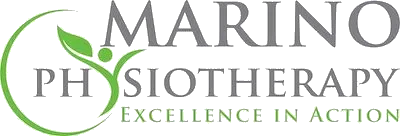Running requires proper recovery in order to keep their body healthy and prevent injury. But the most effective way to do so is through an organized plan that incorporates various components.
Hydration, refueling and proper sleep are all integral parts of a successful recovery strategy – and you don’t have to implement them all at once!
Hydration
Running depletes your body of fluids, electrolytes and energy, so proper recovery is critical for maintaining good health. Your capacity for recovery depends on several factors like fitness level, intensity of runs and volume of miles covered as well as your own experience as a runner.
Hydrating before and during a run is essential to keep your blood sugar levels stable and prevent fatigue. Additionally, drinking a sports drink after an extended run replenishes glycogen stores in your muscles.
However, everyone’s hydration requirements differ. Speak with your doctor about creating a tailored hydration plan tailored specifically for you. Visit Marino Physiotherapy for more information on how to maintain your body’s health through proper hydration and recovery methods.
Refueling
On long runs, your body relies on glycogen stores in the liver and muscles for quick energy. Without refueling after a couple of hours of activity, these stores will likely be depleted.
Refueling is a crucial aspect of running and should be tested out during training to find what works best for you. You can do this by experimenting with different fueling strategies during your run and tracking how it affects you afterward.
Refueling helps replenish glycogen in your muscles, promote protein synthesis and replenish electrolyte stores – all of which will help you recover faster from workouts. This all contributes to stronger muscles that will allow you to push yourself harder the next time around.
Refueling within 30-60 minutes after exercising is the ideal way to replenish glycogen you burned during your run. Everyone’s body works differently, so try different options and see what works for you! If you’re experiencing foot and ankle pain, Marino Physiotherapy offers specialized treatments to help you recover and get back on your feet.
Rest
Resting is essential for runners in order to repair and grow muscle, tendon, and bone tissue. Exercise causes microscopic tears in these body tissues which need time for your body to repair the damage and regenerate new tissue – helping avoid overuse injuries such as stress fractures or Achilles Tendonitis.
Rest days are important for preventing mental fatigue, which can be just as detrimental to your training as physical exhaustion. They allow you to refocus and come back rejuvenated for your next run or race.
Although taking a full day off may not always be possible, make sure to include at least one rest day into your weekly training plan. For most runners, one rest day is sufficient; however, some may need more than one.
Movement
Running is an excellent way to build up strength throughout your body, from the tendons and ligaments to your bones. Additionally, running helps enhance brain health by increasing gray matter plasticity which can enhance focus and combat depression.
Running can also be a great way to de-stress, as taking a run-break from a stressful project can be refreshing and insightful. According to Amy Hamilton, M.D., a family physician and running coach, even 20 minutes of running can help lower stress levels.
Runners who regularly engage in strength training, stretching and foam rolling tend to have healthier joints than their sedentary counterparts. That is because running strengthens your legs and hips, making your joints more resistant to wear and tear.
Though running is beneficial for you, it’s not enough just to say so. You need to make it a priority and plan for optimal recovery by strengthening your muscles, stretching, foam rolling, and taking breaks from running in order to reduce muscle soreness and fatigue. Marino Physiotherapy offers physical therapy and sports rehabilitation services to help you maintain your running routine and prevent injuries.
For more information or to schedule an appointment, visit our contact page today!



